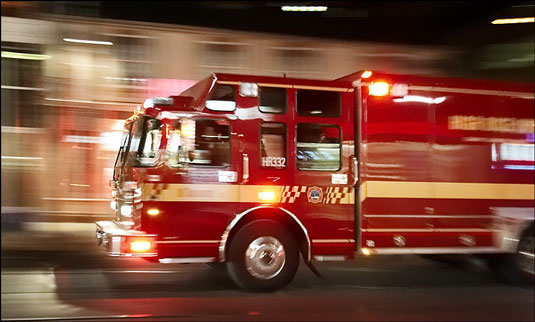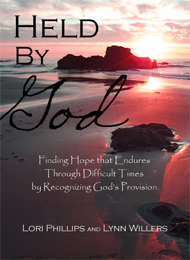 The most valuable counsel I have received in my life has never come from a novice. It’s come from those who bore the scars of the crucible. -Chuck Swindoll
The most valuable counsel I have received in my life has never come from a novice. It’s come from those who bore the scars of the crucible. -Chuck Swindoll
Last week, I drove past the Urgent Care facility around the corner from my house and recognized a familiar site. A bright red fire truck, paramedic unit and ambulance sat just outside the front entrance. Memories of fear and panic flooded my mind, as I remembered a nearly identical scene. I then realized it had been almost nine years to the day, when I was the patient for whom that same fire crew responded code 3, and loaded into an ambulance in that very same driveway. That day changed my life, my focus and my priorities.
If you’ve read my bio, you know a bit about that event already, but for those who don’t, I’ll give you the Reader’s Digest version to bring you up to speed.
Over the Christmas holiday in 2002, I experienced a few days of severe shortness of breath. Thinking I might have a respiratory infection, I drove myself to Urgent Care, hoping that I could get a prescription for antibiotics which I was sure would bring me back to health in no time. I had never really been gravely ill before, so it never dawned on me that there could be anything seriously wrong with me. Unfortunately, that was not the case. After listening to my lungs and administering a spirometer test, the doctor ordered a chest x-ray. He then came into the room and sat down on the exam table next to me. I thought that was a bit odd. Before I could wonder why we were both sitting on the exam table together, he asked, “Did you drive yourself here today?” Uh-oh. I knew that kind of question could not precede good news. Then with the utmost care he said that my lung had partially collapsed. I was in shock. I had no idea how that could happen, or how they might fix it, but I was scared—really scared. They called for an ambulance to take me to the hospital and escorted me to another room to wait for the paramedics. Within minutes the small room was filled with husky firefighters. As they secured an oxygen mask over my head, they took turns looking at my x-ray, then back at me, then back at my x-ray. They asked if I had fallen down stairs, been in an accident, or suffered blunt force trauma recently. I got the strange sensation they were surprised that I was still conscious. I kept hearing “100% pneumo,” and while I didn’t know exactly what that meant, I was pretty sure it was bad! Over the next thirteen months, I would learn a lot more about my condition. During that time, I would have three more collapses, take another exciting ride in an ambulance, be hospitalized four times, undergo thoracic surgery, complete three rounds of pleurodesis, endure five chest tubes, and finally receive a full hysterectomy. Thus began my medical adventure and year-long struggle with catamenial pneumothorax.
This condition is reportedly a “rare” form of endometriosis which causes the lung to collapse during menses (although I personally suspect it is highly under-diagnosed). Literature reports that endometrial implants are most often seen imbedded in the diaphragm, and less frequently on the lung or pleura. During menses, the implants bleed, causing air from the abdominal cavity to enter into the pleural space (between the outside of the lung and the chest wall), which causes the lung to collapse. Treatments can include surgical repair of the diaphragm with pleurodesis and/or estrogen-suppressing hormonal therapy. Many ladies opt for an oophorectomy (removal of the ovaries) to induce surgical menopause, when other treatment options fail. Such was the case for me and for my twin, who began having collapses a few months after I did.
All of this melancholy nostalgia caused me to look back and remember where I was then—physically and emotionally. It was a really tough year for me. Some of the surgical procedures I endured were just brutally painful. I always had hope that each treatment would be my last, only to have those hopes dashed as another collapse occurred. Emotionally, I was worn out. I spent a lot of time talking to God. Correction—I spent a lot of time crying to God. I was continually plagued by the crackling sound of each inhalation that I had to keep the television on to drown out my own breath sounds, so I could sleep. There were days when I was terrified that this would never end—but it did end. About one year into my struggle, and in the hospital with my fourth collapse, I finally asked for a full hysterectomy. My twin (who also continued to have collapses after thoracic surgery) had her hysterectomy one month later. Surgical menopause was the only treatment that worked for us, and as of this month, we have been collapse-free for eight years!
While I am grateful that I no longer suffer collapses, I can’t say that my body ever got back to what I would have called “normal.” I have significant scar tissue around my lung that causes tightness when the weather is cold. Nerve damage from chest tube insertion prevents me from twisting too far, before I get a terrible abdominal cramp. Surgical menopause at 41, brought hot flashes, night sweats, irritability, weight gain, lower stamina and fatigue. Bio-identical hormone replacement has relieved some of those symptoms, but overall, I never quite got back to the physical health I had before the collapses started. I wonder if sometimes, after allowing a life-changing experience, God doesn’t quite bring us back to square one. Maybe he allows us to retain a few scars to remind us of where we were before our trial began and where we are when it ends. As he guides us through the storm, we become changed people, and our lives are never the same, so perhaps he wants us to remember that.
In my own case, I find that I am more grateful for blessings and less worried about things I cannot control. I have seen the Lord take me through some devastating events, and stay with me in the middle of chaos. During an intense period of suffering that was scary and painful, I was never alone. Every need I had was met and I experienced God’s mercy, grace and faithfulness first-hand. I find that I am less tolerant of worldly nonsense (prime-time television comes to mind), and more passionate about making a difference that counts. My twin and I have used our experiences to minister to fellow patients by providing an informational website on catamenial pneumothorax. We also share our story and testimony in our book, Held by God, which was published in 2010. Overall, the scars I retain from my medical adventure help me to keep focused on what is important. They help me to remember that both this life and this body are transitory.
Scars are evidence of a battle fought. Jesus still bears the scars of the battle he fought and won, for our very souls. The marks upon his body are reminders of what is at stake. Sacrifice produces scars, and if God has to sacrifice some of our comfort to grow us spiritually, and refocus us back to himself, he will. He did so with Israel time and time again. Every time he blessed them, they got complacent, apathetic and lazy, and eventually turned away from him. So he allowed them hardships to turn them around and bring them back. His faithfulness to them in spite of their faithlessness showed his love for them.
If our trials cause us to turn from what the world offers, and instead spend our time, energy and resources on that which is eternal, then the scars we carry from those trials are beautiful reminders of God’s enduring love for us.
On the journey toward Home,











